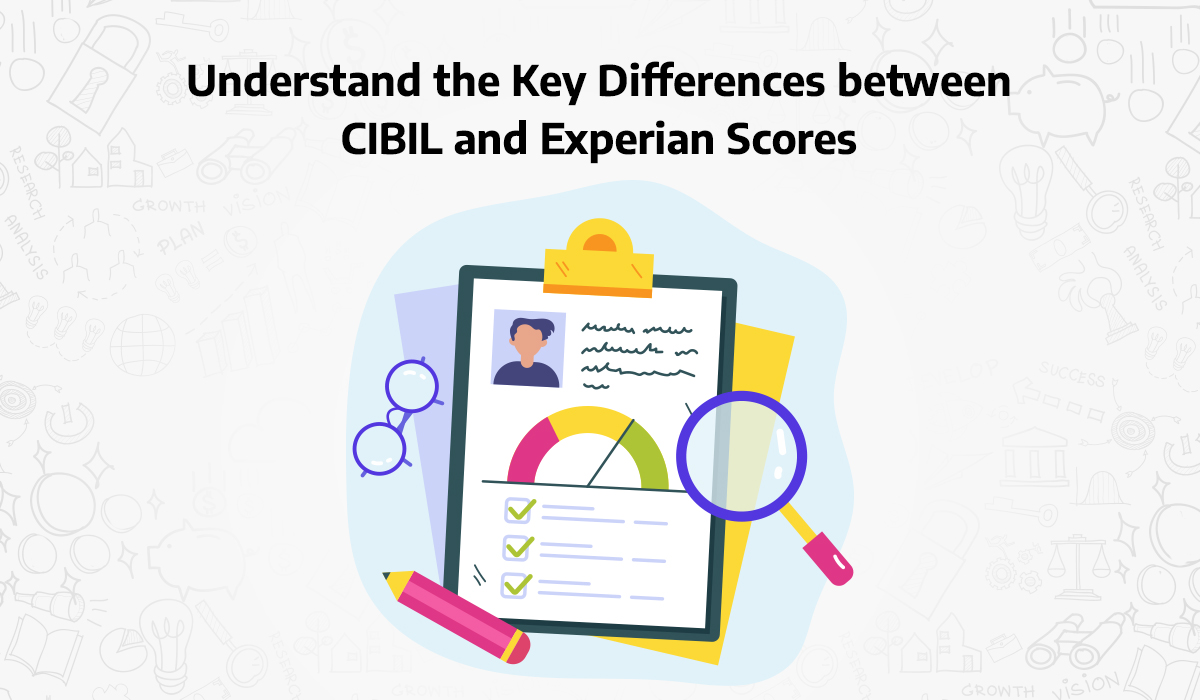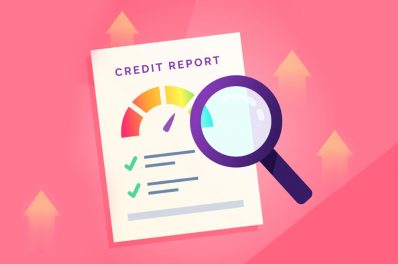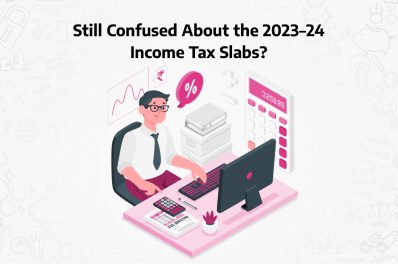
If you’ve borrowed an instant Personal Loan or have a credit card in India, the credit bureaus licensed to operate in the country have access to your credit history.
Credit Information Companies (CICs) in India compile and evaluate individual and corporate credit reports, also known as credit profiles. CIBIL and Experian are two credit bureaus that top NBFCs and lending institutions rely upon to check borrowers’ credit profiles before providing any loan or credit. But are your personal CIBIL score and Experian credit scores the same or different? Let us explore!
What Is CIBIL?
TransUnion CIBIL Limited, a subsidiary of TransUnion, is one of India’s well-known and widely used credit bureaus. In India, they manage credit files for approximately 600 million individuals and 32 million businesses and prepare credit reports for consumers and corporations.
In 2007, CIBIL launched the CIBIL Score, India’s first generic risk-scoring model. It evaluates the risk of lending to borrowers based on their credit history. Since then, many lending institutions have been using the CIBIL score (for personal and other loans) to assess individual ability to manage debt and repay their loans. A high CIBIL score is somewhere over 700 and if you get offered a loan with a minimum CIBIL score, it’ll most likely come with exorbitantly high interest.
CIBIL members include all major financial institutions in India, housing finance companies, and financial institutions. As a result, almost all lending institutions use the CIBIL credit report to assess their customers’ creditworthiness before lending. For example, at Clix Capital, we check the CIBIL score of Business Loan applicants while considering their applications.
Also Read: 3 Signs You Must Check Your Credit Report Now
What Is Experian?
Experian is a global credit rating agency operating in 44 countries and has assisted lending institutions in making 3.5 billion credit decisions.
Experian provides its customers with business tools, such as Market Switch and Powercurve Origination and credit scoring, allowing them to make more informed business decisions.
Experian was licensed as a credit bureau in India in 2010. Since then, their services have assisted financial institutions in making millions of lending decisions while also helping reduce fraud and identity theft in India. We at Clix Capital refer to Experian score for screening Personal Loan applicants.
Difference between the Experian and CIBIL Score
Both Experian and CIBIL have established themselves in the Indian financial market. The two organisations use different algorithms to calculate and maintain credit scores.
• The primary distinction is that the Experian report is better understandable while the CIBIL report, as per common perception, is more detailed.
• The Experian report includes additional information such as graphs, revolving credit utilisation, court cases filed by lending institutions, and loans secured by encumbered assets. CIBIL does not cover this valuable information. Experian is thus more comprehensive and assists lending institutions like ours in making better decisions based on the borrower’s credit profile.
• The only area where CIBIL outperforms Experian is in legacy data. CIBIL, the first credit bureau in India, has credit data for a larger population. Experian is unlikely to have data on a customer who took an instant Personal Loan in 2006 and never took another one.
• CIBIL is well-known for its business credit scores. As a result, major financial institutions and NBFCs continue to consult CIBIL for their requirements. Loan prerequisites differ when you have a high credit score and take out a loan with minimum CIBIL score.
CIBIL vs Experian: Which Holds More Weight?
Both CIBIL and Experian have equal weight in influencing your credit prospects. CIBIL has a significant advantage over Experian, as many financial institutions in the country use their credit reports. Furthermore, CIBIL is a pre-existing and India-centric organisation, which makes it more widely used by financial institutions.
Also Read: 9 Facts About Credit Score Everyone Thinks are True
Will the CIBIL and Experian Credit Scores Differ When You Apply for a Business Loan?
The answer is yes; your personal CIBIL and Experian scores will differ when you apply for a Business Loan. It is so because both credit companies provide credit reports and assessments to borrowers, using different algorithms to calculate the credit scores.
CIBIL and Experian use distinct filters and factors in their scoring algorithms. They use hundreds of data points to inform and create your credit report and score. The key difference between the two credit bureaus is that CIBIL scores are between 300-900, while Experian scores range between 300-850.
For example, if your Experian credit score is 630, as required by us for Personal Loans, your CIBIL score does not have to be the same. The good news is when you are applying for a Business Loan, we check only your CIBIL score.
A high credit score offered by any bureau certainly increases your chances of obtaining a loan with favourable terms. A credit score of 700 or more is considered ideal for obtaining a Business Loan from Clix Capital.
Now that you understand the significance of your Experian and CIBIL scores, you must make it a point to check them regularly, especially before applying for a loan. To maintain the best credit score and to identify errors, carefully review your credit information.








